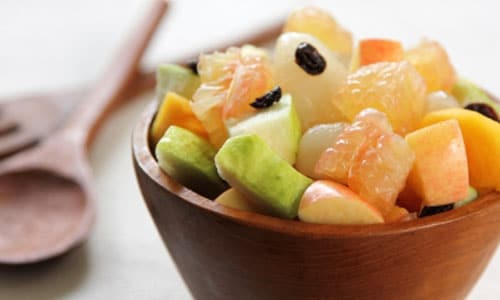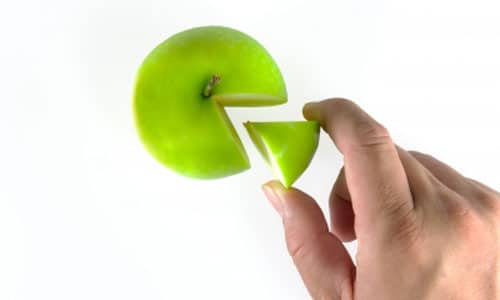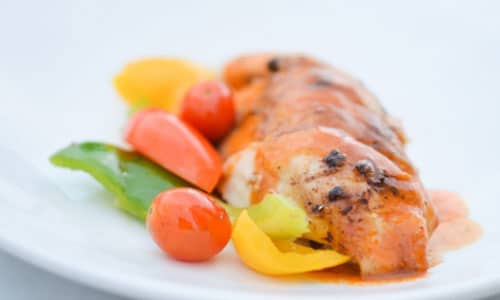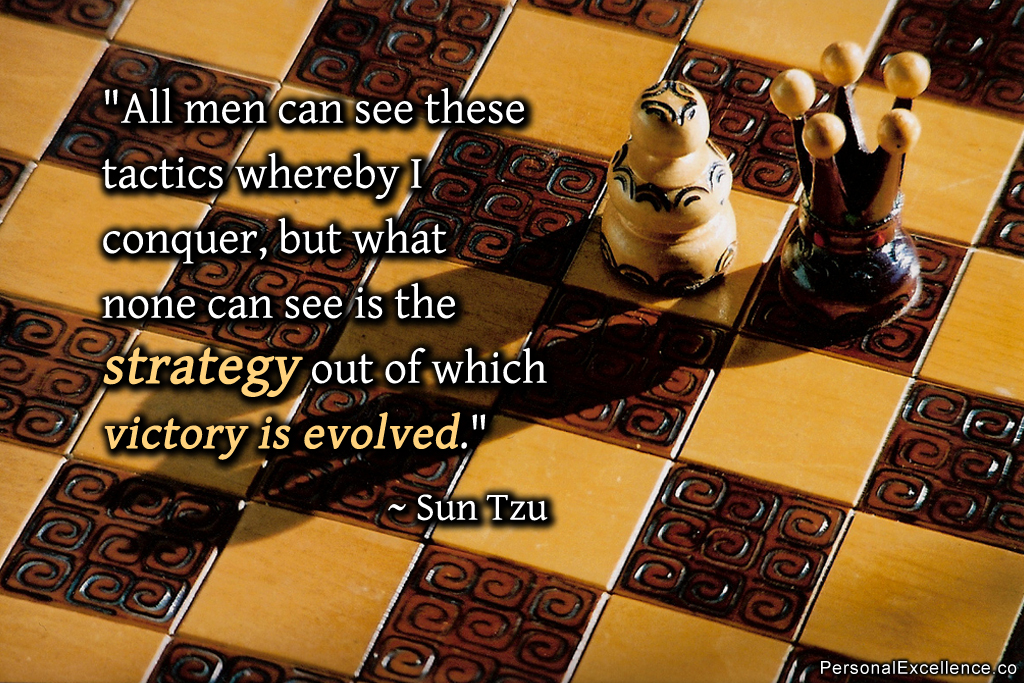This is a guest post by Alexander Heyne of Modern Health Monk.
This is part 1 of a 2-part series on how to get a six pack.
- Part 1: How To Get a Six Pack, Part 1: Cracking the Diet Code
- Part 2: How To Get a Six Pack, Part 2: Managing Your Lifestyle

(Image)
That elusive six pack.
The dream of every dieter.
The focus of every health and fitness magazine.
Judging by how often I see “get ripped abs” on magazines every day at the supermarket, It’s safe to say we’re obsessed with a tight midsection.
Unfortunately, because there’s such a strong emotional pull to getting a six pack, this is often where a lot of scam artists come in and try to sell you their products.
Most of the time they don’t work. Sometimes, they’re harmful to your health.
Just last year, there were commercials on TV for a “new, revolutionary weight loss product” called Hydroxycut. It gave you the typical fat loss promises, the typical “get slim, quick” type sales pitch, and then featured cheesy testimonials, before/after images, etc.
Six months later, there were news commercials talking about how Hydroxycut got recalled because of potentially severe health side effects and at least one death.
And guess what? A year later the “new, improved, safe” Hydroxycut entered the market.
It’s just this terrifying cycle pulling on the emotional mind of consumers, something that is generating billions of dollars in totally useless diet products.
Unfortunately, there are very few people that have a six pack that A. Know what they did to get it, B. Know what they’re talking about and, C. Have no interest in selling you a diet pill.
So Celes and I figured this would be an awesome topic to cover – and one that’s shrouded in lots of mystery!
So, let’s jump in and talk about what it really entails!
The Key Factors on Getting a Six Pack

Hi PE Readers ! No tricks, no gimmicks, and I don’t do ab exercises. This is what I look like 365 days of the year – this is not a “post workout” glamor shot with tricky camera angles or perfect lighting or anything.
Alright, there are five key factors on getting a six pack (or getting those Victoria secret abs, if that’s what you ladies are looking for!)
- Genetics
- Diet
- Exercise
- Sleep
- Stress
We’ll go into each of these in much more detail along the series — but for this post, we’ll focus on diet because it’s the most important.
1. Genetics
My young sister is friends with two models – and they eat junk food like McDonald’s almost every day, but stay thin.
They have genetics that allow them to remain thin and not gain too much fat when they overeat. That is not something they can control. And neither can you.
Your genetics will determine a couple factors:
- Where fat accumulates, and how much
- How much your body tolerates carbohydrates, and what effect overeating has on your physiology
- How much muscle you can build, and how easily
- … And many other things
So, for those of you with skinny genetics, (“ectomorphs”) it’s easier to stay lean, but much harder to gain muscle.
It also means you can get away with overeating or generally can eat a higher amount of carbohydrates without gaining as much weight.
For people with “larger” genetics, (“endomorphs”), you are naturally more muscular and bigger, but have a harder time losing weight or belly fat. These people generally need to watch their eating habits more closely, and will gain weight easier than a skinny person.
Chances are, you already know what body type you have. You know because you’ve probably been skinny or a bit bigger your entire life. You also probably already know what type of genetic fat accumulation patterns your body has.
For example, a close female friend of mine gains weight only in her butt and legs. If she gains weight or over eats, it just goes there, and nowhere else.
I thought it was the strangest thing until I met her mom – and I realized the exact same thing going on. Genetics has a large part in fat accumulation (where/how much). However, having certain genetics does not mean you cannot change your outward appearance.
2. Diet
Diet is what we’re going to talk about today, because it’s going to account for virtually all of your success.
Let me let that sink in: getting a six pack is almost entirely (80%+) a diet game. You need to get the eating down.
No you won’t get a six pack if you exercise without changing your diet.
No you won’t get six pack by doing thousands of crunches every day.
If you don’t believe me, try it. :D
Today we’ll talk about diet because it’s the most important. Remember to keep it simple: if you ever don’t know what you’re doing wrong, always go to check your diet first.
It is entirely possible to exercise every single day, but not change your diet, and not get anywhere close to having a flatter stomach. It’s crazy important! And it’s also the hardest part.
3. Exercise
Exercise, done right, is basically the turbo-charger of fat loss.
If you have your diet correct, exercise will help take it to the next level. Exercise can also help off-set an unhealthy diet, or a day of temporary over-eating.
We’ll go into it in more detail in future posts.
4. Sleep
Lack of sleep can totally block fat loss.
… Please read that again.
Lack of sleep can totally impair your fat loss efforts.
Where I live (USA), people are obsessed with work, achievement, and being busy. Naturally, few people get the recommended amount of sleep.
There’s a reason why lack of sleep can totally block fat loss, and it all has to do with this: cortisol.
Cortisol is the hormone released in a couple situations, but most notably when we’re stressed and when we’re sleep deprived. (Get in the routine of waking up early.)
5. Stress
We just talked about cortisol in the sleep section, but stress also causes a release in cortisol to occur and can have similar effects. (Check out as well the How To Manage Work Stress [Manifesto].)
What My Diet Looks Like (To Maintain a Six Pack All Year Round) – The Breakdown

(Image)
Alright, let’s jump right into the dietary portion.
Here is literally what I eat and drink every day:
Animal Proteins (With each meal, about three to five oz)
- Fish
- Eggs
- Chicken
- Beef
Other Proteins
- Nuts and nut butters: Peanuts, Cashews, Almonds, Macadamia nuts, etc.
Fats
- Those naturally found in meats
- Extra olive oil added to each meal or when cooking (about one tbs)
- Peanut butter/almond butter/nuts
- Avocado
Vegetables (Unlimited – the more, the better)
- Virtually any and all vegetables; might want to watch the potato/sweet potato intake if you eat a lot of them (high-carb, relatively high calorie)
Fruits
- Fruits are great to eat in addition to vegetables. The one thing is that mass consuming fruits is a lot of sugar – so I wouldn’t go consuming fruits in excess, and would stay away from eating too many fruits like mango and papaya in large quantities.
Carbohydrates (Vary based on the individual and their goals)
- Rice and sweet potatoes
Drinks
- Water
- Coffee
- Tea
- Red wine (one to two glasses per night with dinner)
- Beer (very rarely)
- Liquor (very rarely)
Note: You’ll notice I don’t eat any wheat (no bread, no pasta), and I don’t eat any dairy. These are because of my own individual health issues: gluten/GI problems (bread/pasta), and lactose intolerance (dairy).
Wheat tends to cause problems for a lot of people (even if they don’t know it), and the elimination of it has people feeling a lot better.
But for those of you that feel fine and just want to lose belly fat – put wheat and pasta in the carbohydrates category (monitor carefully and experiment based on your body type).
As for dairy – I put this in the “neutral” category. When tracked long-term, moderate dairy intake appeared to have a “neutral” effect on long-term weight gain. Unless you’re drinking four glasses of milk a day, don’t worry about it too much.
Sweets: I don’t have any sweets on a weekly basis. (Zero — and I’m not special. As your diet cleans up and you avoid these things, you stop craving them. They function a lot like a drug addiction – no joke. In the future we will talk about the addictive nature of sweets, and how to clean them up from your diet and never crave them again.) Do you need to be so strict? No, but the more strict you are the better results you’ll see.
If you eat a little bit of sweets each day, you should be fine. Ideally stick to something like ultra dark chocolate though.
Fruit juices: Avoid them altogether. They are a liquid carbohydrate – basically one of the most fattening things you can consume. Eating your fruit is much healthier.
Soda: … hehe. (Read: 5 Reasons To Quit Drinking Soda Drinks (And How to Do It))
Alcohol: Beer = virtually the same effect as fruit juice. If you can help it? Avoid it completely. Wine is fine in moderation (One to two glasses per night) and is less fattening than beer. Liquor is also fine (depending on which type), but it’s often mixed with fruit juices or soda – avoid those sugared up mixed drinks if you can.
The Meals Themselves

(Image)
Note: What I currently eat is mostly for someone of my bodytype (who has a hard time gaining weight). So I eat like a bodybuilder. But generally speaking, eating tons of veggies, some fruit, and a little bit of meat will do you well at each meal.
For me, my breakfast looks like this (I eat a high-protein breakfast to stay full longer):
- Eggs
- Nuts and/or avocado
- Coffee
- (And depending on my workout: Orange juice + protein powder)
“Snack”:
- Nuts
- Four to five oz of a protein source
- One cup rice or sweet potato
- Peanut butter or olive oil
- Veggies
Lunch
- Four to five oz of chicken
- One cup rice or sweet potato
- As many vegetables can fit on the plate
- One tablespoon drizzled olive oil
- Veggies
“Snack”:
- Nuts
- Four to five oz of a protein source (chicken, salmon, shrimp, etc.)
- One cup rice or sweet potato
- Peanut butter or olive oil
- Veggies
Dinner
- Four to five oz of a protein source
- Vegetables (unlimited)
- Sweet potato or rice
- Red wine
I eat a lot of the same thing. But you don’t need to do that.
Six Pack Lifestyle Changes 101 – in Seven Weekly Lessons
You probably read all that and had your brain melt, so let’s break it down for you ! Remember, today we’re just going to cover the dietary portion of this.
Let’s basically keep it straightforward: what foods to eat, and how much (and even when).
I’m going to put each change into a theoretical seven week program — so you can take a week to really work on changing each habit or at least start to understand it.
Week One – The Right Foods
Alright.
As to what foods to eat — think of it like this: when many professional fighters are cutting their weight down for a fight, and they want to get as lean as possible, they are literally just eating meat, plants and fat.
The same is true for actors in movies who need to get fit for a role — lunch literally looks like this: turkey and lettuce, or chicken and veggies, or salmon and a salad.
So every meal usually consists of a protein source and veggies. No complex carbs. No bread. No pasta. No alcohol. No sweets. No sweet potatoes. In it’s strictest form that would be the worst case scenario for someone who really wants to cut down. Essentially an ultra-low carbohydrate, slightly lower calorie, high protein – high veggie diet.
I’m not at all anti-carb, or a low-carb proponent – it’s just that each person really needs to test what works well for their body type, because research has repeatedly shown that people have dramatically different responses to the exact same amount of overeating.
If you’re superman or superwoman and you can adhere to this lifestyle day-in and day-out, by all means go ahead! But chances are that you’re human, like me, so let’s hop through a couple weeks of lifestyle changes.
You can basically dial these up, or dial them down for different results. Some people that might really want to commit to this can follow it to the T, while others can just follow a little bit and see some weight loss. Sound good?
I would suggest one key theme to your meals: eat a protein source and as many veggies with every meal. Eating protein ensures that you stay full, you don’t overeat the wrong foods, and if you’re going to be exercising in addition to eating right, it will help you build muscle.
The more muscle you have, the higher your basal metabolic rate. Good news for people who want to burn calories even when they’re not working out!
See the above where I list everything I eat — you can add in whole grains, wheat, pasta, etc. but know that it’s going to be much harder to lose fat to low enough levels for abs to show.
The benefit of eating the right foods is that it’s extremely hard to overeat, and extremely hard to eat excess calories. I did a little experiment (in pictures) showing this.
Week Two – A High Protein Breakfast
Believe it or not, there really isn’t much science supporting the idea that people who don’t eat breakfast end up fatter in their lives.
However – there is one major reason to eat breakfast: Eating regular meals helps keep your blood sugar stable and prevents sugar cravings. The more consistent and planned your meals are, the better chance you’ll turn to the right foods and a stable blood sugar will lead to smart choices.
So why a high-protein breakfast?
Protein is more filling, and we want you to start the day off with energy and not a grumbling stomach :)
I would suggest about 20-30 grams — 30 grams of protein is found in about four oz of chicken (about the size of a deck of cards).
That’s also about eight tablespoons of peanut butter, or 200g of cashews.
Week Three – Remove Liquid Calories
Liquid calories are one of those things that may be contributing to excess body fat without you even knowing it.
Guess why?
Think of the major sources of most of the liquid calories we drink.
Off the top of my head: soda, fruit juice, Starbucks frappucinos. Guess what they all are? SUGAR!
Yes, even your morning orange juice :( . You are much better off (health-wise, and body fat-wise) just eating the fruits you like, rather than drinking them.
But week three focuses on just eating your food. Liquids also tend not to fill us up as easily as eating solid food, which can sometimes lead to over eating.
Week Four – Increase protein intake

(Image)
Remember week one: for getting super lean, most meals will look like this: a protein source (like chicken/salmon), tons of veggies (anything except for potatoes), and then some healthy fats (olive oil, or those naturally found in your meat).
From there – you’ll need to experiment with your carbohydrate and fruit intake (fruit is a big carbohydrate/sugar source too!)
So why increase protein?
Three reasons:
A. It keeps you full. Many dieters fail because they eat fewer calories but they eat the same kind of calories they ate before – crappy ones – and they’re left starving.
B. If you’re exercising or doing some weight training (which you will most likely need to get body fat levels low enough for a six pack), you won’t grow without enough protein. I’d recommend .5 grams to 1.0 grams per pound of body weight — so a 150 pound person would need 75-150 grams of protein.
C. It also means you’ll eat less of the bad stuff. When you increase protein intake, you have to decrease intake of something else (or else you’ll be stuffed). Hopefully that means less sugar and junk food, but for us we’ll use that to experiment with a slightly lower carbohydrate intake.
Week Five – Increase vegetable intake
I don’t think I really need to explain why you should be eating as many veggies as possible with each meal. Your momma told you to eat your broccoli, and that’s why!
Just kidding.
But seriously – vegetables are where you get most of your disease-fighting immune help from. They are often much higher in the protective vitamins and minerals than anything else you eat (even fruits!). Aside from the obvious – more veggies will help protect you from getting sick – we’re trying to get in the habit of eating the good stuff.
And again, eating more veggies will mean you’re going to eat less of other stuff you might be snacking on.
Week Six – Carbohydrate Testing
You’ve probably all heard of the low-carb movement, the Atkins diet, the Paleo diet, etc. Don’t worry! I’m not about to tell you to go low carb.
I’m going to tell you something very few people do: experiment and see what works best for your body.
I have a female friend that went on the Paleo diet (the so called “king” of diets), and her carbohydrate intake went so low that her period stopped and she began getting health problems.
I have other female friends that went very low carb and they were totally fine. So you really need to experiment for yourself.
There’s also ample research showing that everyone’s body responds differently to eating various foods, including just over eating. Thus the importance of experimentation.
Here are two experiments I’d suggest trying:
- A. Pick one day where you’ll experiment with gradually decreasing/removing most of the carbohydrates. So for example, Saturdays I’m going to experiment with just eating protein, veggies, and healthy fats all day. No bread. No pasta. No sweet potato. No fruit juice. From there, you can experiment with adding more days, watching your energy levels, and monitoring the fat loss.
- B. Pick one meal a day to remove carbohydrates – then increase that to two, three, etc. So for example, you might choose to eat rice or pasta just at lunch, and avoid it throughout the rest of the day.
So what about me? Do I eat carbohydrates? Yes, a lot.
However – I can get away with this due to three things.
A. The rest of my diet is very clean – no junk food, very few liquid calories, no sugar.
B. I’m very active almost seven days a week (four days of weight lifting, three days of judo) = need more energy!
C. Genetics – remember at the top we talked about genetics? Leaner people have a harder time gaining muscle, but also gaining weight. So I can get away with eating a slightly higher carb intake than many other people probably can. So for me, building muscle has been the lifelong struggle!
Week Seven – What Gets Measured Gets Managed
It’s often easy to over-estimate how good we are on a certain day. We may say “Yeah, I only had one sweet thing…” but when you look down at your recorded food, we cheated a lot more than we thought.
If you aren’t seeing results, it’s really important to be scientific and measure things.
If, for example, you have followed these suggestions, and you honestly can say you haven’t made improvements, start tracking everything.
Note: it’s not fun, and it’s not easy – I won’t sugar coat it. But it works.
If you have an iPhone, there is a free app called My Fitness Pal that you can log everything. It even recognizes certain brands of foods, and will tell you exactly how much protein, fat and carbs you ate, as well as calories – and it will help you set goals.
There is also a website if you want to log everything that way.
Don’t trust yourself when it comes to being scientific – log everything as a last resort.
Whew! What’s Next? The F.A.Q.

(Image)
“How often should I eat?”
I would suggest eating at planned times, rather than just when you’re hungry. The more regularly you plan your meals (and eat), the more stable your blood sugar will be which will help fight sweet cravings. Definitely do not go longer than three hours without eating.
“How many meals should I eat?”
As many as you need. My friend who recently lost 66 pounds ate up to five meals a day. Remember to think more about what you eat, rather than how much.
“What time should I eat?”
Doesn’t matter, but keep the breakfast protein suggestion in mind. You should eat regularly though – and schedule meals. Don’t let yourself randomly just start snacking when you get hungry, you shouldn’t be getting hungry if you’re planning and timing meals.
“Should I flat-out go low-carb?”
No — just experiment with varying carbohydrate intake levels. For some people, they can tolerate low carb well. Others (especially if you are more active), can’t. Experiment.
“Do I need to starve myself?”
Nope — starvation diets don’t work — not long term anyway. Dramatically reducing calories is linked to very low diet adherence (not surprising). If you are “not eating” something is very wrong, and your energy levels, sleep, and health will suffer. Especially with exercise, you need to be constantly eating. You also will be losing muscle due to – literally – starvation. That’s not good!
“Is the advice same for men and women?”
Yes, but remember that women are not designed to have extremely low body fat, and it’s often a bit of a slower process. All this means is that a man may be able to get six to ten percent body fat and stay there comfortably – while a woman will need at least double that. By age twenty, most women have double the body fat that men do — it’s supposed to be like that.
Top female athletes and runners frequently stop having their period once their body fat levels get low enough. So just be patient through the entire process, which may take a little longer than it might for a man.
“How long will the process take?”
This is pretty much impossible for me to answer, because I don’t know where you’re starting, how often you exercise, and what your diet looks like now. Obviously, a person with fifty pounds to lose will take much longer than someone with just a little bit of extra weight.
For someone “normal” body weight, who has a little extra fat, it might take as short as four to six months depending on how quickly they clean up their diet. Someone else who has been eating poorly their entire life may take two to five years to get to the same point. Patience!
Remember – the process (like anything) takes time – and it depends where you’re starting. The goal is always worthwhile though – six pack aside, you’ll feel your energy levels and quality of life improve massively when you start getting healthy.
Continue on to Part 2: Managing Your Lifestyle
This is part 1 of a 2-part series on how to get a six pack.
- Part 1: How To Get a Six Pack, Part 1: Cracking the Diet Code
- Part 2: How To Get a Six Pack, Part 2: Managing Your Lifestyle
About the Author: Alexander Heyne writes at Modern Health Monk, a site that shows people how to reverse health problems caused by 21st century life.




![Good Carbs vs. Bad Carbs [Infographic]](https://personalexcellence.co/files/infographic-good-bad-carbs-400x1100.gif)
 I hope you find my content helpful. Join my community of 65,000 readers and get my latest articles delivered to your inbox. Your email is safe and I never send spam.
I hope you find my content helpful. Join my community of 65,000 readers and get my latest articles delivered to your inbox. Your email is safe and I never send spam.
Great article, I don’t agree with HAVING to eat every three hours though. From an evolutionary view, this makes no sense. Eat when you’re hungry – this works well if you’re eating a diet free from processed food and sugar.
I think eating every three hours is a good guideline to ensure the stomach doesn’t go empty/hungry actually. Some people really just don’t feel the sensation of hunger–it was hard for me to comprehend this fact until I met my fiance. He doesn’t feel hungry even when he hasn’t had food for over 12 hours, and it’s so much that he doesn’t need food than the fact that his body simply doesn’t give hunger signals (or that he doesn’t recognize them). (And we eat healthily too, from salads to soups to home-cooked meals; he is also very fit and well-muscled with an eight-pack body.)
Hi Alex,
great post! That was the kick to give me and my girlfriend the start we´ve been talking about so much recently. Everything suddenly makes so much sense!
I am an ecto for sure. Very skinny, just 10% body fat (got that measured today, that´s why I´m posting right now).
My “growing” problem over the last couple of years, I´m 29 right now, is my little belly, not much, just about 1-2cm of fat covering my six pack muscles. I am just afraid with a strict low to no carb diet I will become even skinnier
Guess I loose weight faster than growing muscle (probably, not sure though). So basically my question is how much body fat do you have or do you think one needs to show the pack?
Anyway I will try to focus on eating low carb – high protein, doing a regular workout as you propose in part 2 and see results by the time I see them. No pain no gain ;-)
Best regards from Germany! Love the new input on PE from experts!
Lisandro
I know the struggle 100%. I’m definitely an ecto but eating protien feeds and help contain muscel so going low carbs won’t affect your muscels just your fat. Veggies give you all the nutri you need and so on. Good luck
I’m really loving this article.
Hi Alexander,
I have big belly and always under the impression that cannot make it slim because been having it since i was kid (5 years). being a asian – not able to ignore Rice which is my staple food (High Carb).
I have switch from marathon to yoga recently after quitting exercise due to career change. would love to give a try on 7 weekly diet. -Thanks Alex.
Celes- I wont have stop exercise if goal is set and progress is track. :-)
Hi! I’m 19 years old and i reaaaally want to lose the extra fat i have in my belly and i do p90x2 and run everyday for 30 minutes but i don’t have and adequate diet, i’m the type of person that doesnt gain weight too easy but i dont lose weight too easy either. So can i do your diet in order to kill that extra fat and get ripped?
Hey Julian –
Yep! But just remember that you need to change your diet if you want to see optimal results. You can exercise everyday, but if your diet is bad you will see little to no improvements. So make sure you treat your diet as #1 :)
— Alex
I love this article! It came right at a time when I was experimenting with my diet. I’ve experimented a lot with my diet over the years–cutting out dairy, red meat, processed carbs, etc. (not all at the same time). I couldn’t understand why I would get skinnier everywhere else, but never lose fat from my belly even though I was exercising nearly every day. In the past three weeks, I lowered the amount of complex carbs and I’ve already seen a huge difference. I’ve lost weight around my belly and it’s at the flattest it’s ever been. I can even see some abs peeking through! It’s so important that each person experiment to find out what’s the best fit for them. Turns out that the rice I was eating every day with nearly every meal was the main problem!
Hey Ying —
Glad you like it :)
Aha! That rice can be very very sneaky ! Glad you experimented and figured it out.
Best,
Alex
I enjoyed your article. I want to give it a try but have a problem. I am a committed vegetarian, (not vegan). I know I can replace eggs/beans/quinoa for the meat, but I don’t know how much. Also, do you just eat your foods fairly plain? I really enjoy cooking and make some delicious vegetarian recipes. I’m afraid I would get bored with eating things so plainly.
Thanks so much!
Hey Deanna —
Regarding not knowing “how much” – do you mean you don’t know how much would be enough protein?
I actually cook with lots of seasoning, spices, and fats. It wouldn’t be fun eating healthy if it didn’t taste good :).
There is definitely no reason to just eat boring, plain food – make it as fun as possible.
Just keep in mind that my diet is very boring and repetitive right now so that I can track my food intake – I’m on the ectomorph “need to gain more muscle” side of the spectrum, so my food intake reflects that.
Hope that helps!
— Alex
What a very detailed article. I fall in the Ectomorph catagory so i know the joys and pains of having genes that keep me skinny (thanks mom). it is a bit tricky to organize an eating schedule and learning how to cook the bare essentials that could help me lose fat, but seeing how this is a work in progress kind of thing it does give me some thought that I can take my time to incorporate your tips and tricks.
Hey Bryan —
Glad you enjoyed it, let me know if you have any questions !
Best,
Alex
Well for starters, is it particularly difficult making the meals you suggested? Where I work they have japanese lunch boxes for sale so i usually have one regularly so i haven’t cooked as often as I should
Hey Alexander!
I just wanted to commend you on your article! You see so much misappropriation of nutritional information on the net, and this is a really refreshing change.
Will definitely be checking out your future articles!
:D
Hey Toss! :D Alex has written another guest post on PE last month on weight loss myths. If you haven’t read it yet, you can do so here: https://personalexcellence.co/blog/weight-loss-myths/
Hey Toss!
Glad I could help :) Let me know if you have any questions !
— Alex
Hi Alexander!
Could you tell more tips for endomorphs kind of body, to lose more fat, please? I fall in to that category. It’s nice to gain muscle easily but losing fat is sooo haard. I’ve never had a six pack. I understand that for women it’s not too easy and sometimes unhealthy but I really look forward getting one.
Few years ago I took the moderately low carbohydrate diet, exercised five days a week, two hours a day, for half a year. My periods stopped, the same thing that happened to your female friend. The doctor said it was probably because of too strict a diet at too a little time. It must have been too stressful for my body.
Now for the last three years my diet has been between “quite awful junk food” and “normal but too many calories and carbs”. I have recently lost two kilogrammes for good I think. I feel better again and more like myself. My preference is to have a fairly muscular and lean body that’s more boyish than feminine.
Thank you so much for the post! It is nicely packed with facts.
Paula
Hey Paula !
How was your physique when you were exercising two hours a day? It sounds like potential over-training, and with a low carb diet, too little energy to survive on.
I would say limit exercise to 1 hour (maximum) a day. Research tends to show that cortisol levels increase a lot after 60 minutes of exercise – and excess cortisol is really damaging to your health. You’re better off doing more days per week, than more hours per day, if that makes any sense.
If you really want to step it up, you could do 4 days of weightlifting, with 3 days of yoga.
As far as eating goes, I would stick to most meals that have a small protein source, tons of veggies, and then a little bit extra if you are still hungry (nuts, nut butters, etc.)
When strength training, don’t forget you’ve got to push yourself each workout to get stronger — when you get stronger, you’ll really start seeing your body transform.
Hope that helps :)
— Alex
Hi!
Thank you for your reply. :) Yes, what I did back then WAS over-training like you said. The doctor diagnosed me with anorexia and orthorexia which both I couldn’t believe since I was eating a lot everyday. Well, like someone said, the patient usually doesn’t admit he/she has the disease.
I, too, have quite recently heard that exercising over 60 minutes is bad for you. Heh.. it’s impossible to train with full power too long. What I did back then was probably punishing myself for something. You asked what kind of physique I had: My weight was between 48 – 52 kg, fat percent probably 19% and my muscles were shown quite nicely for a girl. When I did squats I could support my own weight on my shoulders with reps 10-12 three times in a row, 2 minutes rest.
Yoga sounds great and as well as the suggestion you did of having weight lifting four days a week. I also like pilates, so I probably can alternate between yoga and pilates. I take your advice to heart. I hope everyone else found my questions and your answers useful, especially those with similar background. :bow:
Hey, I am a vegetarian, i do eat cheese and very little eggs, I dont drink milk. I exercise every day but I feel I need to intake more protein because I find a hard time to burn the fat in certain areas and to increase muscle.
I loved this article but what can I eat instead of the meat/ chicken/ fish in order to intake more protein?
Hey Nani ,
Great question – one I forgot to answer.
Please check out Izzie’s and Sherry’s response above, where I talked about some vegetarian sources of protein :)
— Alex
Thank you alex ;)
P.d. I liked your facebook page!
Hey Alex, great article! I have changed my eating habits 6 months ago, and this was a re-inspiration for me. Thanks alot!
Love your site Celes, trying to get as many friends to log on and sign up. Any thoughts on branching out onto LinkedIn?
Take care all :)
Hey Doug! :D I have a linkedin account, just that I don’t actively use it. Doesn’t seem to play much of a role, if any, in my work at PE since my target audience is more of the mass public than specifically career professionals. :) Facebook and Twitter are better fits for my message. :)
PS: Thanks so much for sharing PE with others. Really appreciate it! :D
Thanks Doug! Hope it helped :)
— Alex
What about beans, would this be considered a good protein for replacing a meat protein? What kinds of beans are best?
Hey Sherry —
Yep! Beans are a good protein source. I also listed some other options for vegetarians above in Izzy’s response. I typically stick to black/pinto beans, lentils, or even quinoa (whole grain) which is a great protein source for vegetarians.
— Alex
hi, thanks for the nice article..and i found the photos comparing real food to processed food awesome..brilliant idea!
My question is for vegetarians: Is this diet recommendable and if yes what are the best protein sources and how much can be eaten per meal?
Thanks
Hi Izzie !
Without comparing any diets to one another (that’s where it gets hairy), virtually everyone will see improved health from eating more vegetables. The more, the better.
The problem as a vegetarian is ensuring that you get adequate protein and also vitamins like B12 – which are often deficient in vegetarians. You can either take supplements for that or add in small amounts of animal protein. If both these requirements are being met, usually it’s fine :)
For example, even the Dalai Lama was vegetarian for a while, but had to add in fish on the doctor’s orders because he was experiencing health issues. So you really need to experiment and see how your body tolerates it.
Vegetarian protein sources range from beans, tofu, quinoa, nuts and nut butters, as well as protein shakes (vegan, like Vega brand). The Center for Disease Control recommends consuming at least 46g of protein a day for women, and 56g for men. Keep in mind this will be higher (almost twice that) if you are weight training and your muscles need it :)
Hope that helps!
-Alex
thanks!
How close to working out should you eat (and how much protein should you have)?
I’ve been working out roughly three days a week in the morning, and usually go straight to the gym after waking up (no eating), and then after that I have a smoothie with protein added. Now I realize a smoothie might not be the healthiest thing, but it’s tended to serve basically as my breakfast/lunch.
I’m wondering though, should I do something differently? I also tend to eat Greek yogurt as it’s got a good amount of protein in it (14g). So I guess what I’m wondering is, should I eat before my workout or after? Or possibly both?
Thanks for the post, I’ll be very excited to read the rest!
Hey Alexa —
I wouldn’t eat too close to a workout, just because it feels uncomfortable. But for me I usually eat every 3 hours – if I don’t, I get a really hungry around that point. If I let myself get too hungry I start getting cravings for food so I just make sure to eat meals regularly.
Regarding your question, “Should I eat before the workout, after, or both” my answer would be “both” if you can help it and can find time. I usually eat 1-1.5 hours before a workout and then within the hour after working out.
Hope that answers your question !
— Alex
Any particular reason for leaving mesomorphs off the list, or were you just considering them another kind of endomorph?
Hey Straycat —
For the example I just used the two extremes to illustrate a point, with the assumption that a mesomorph would fall somewhere in between :)
So for example if a naturally skinny person could get away with overeating and not gain much weight, and a larger person would gain a lot of weight by overeating, a mesomorph would be somewhere in between.
— Alex
Hey Alex, thanks *SO* much for taking time to write this wonderful post. It’s chocked full of information and direct insights from someone who has “been there, done that” — and in this case, it’s achieving that elusive six pack. On behalf of the PE community, I would like to give a sincere thank you.
Stay tuned for part two of the series guys, which is coming up later this week. :)
indeed another great post, looking forward for part2 :)
No problem :)
Regardless of the abs, your diet doesn’t look too healthy Alexander. Humans as a species are frugivores. Our bodies aren’t designed to be comsuming significant amounts of protein. If you look at Atkins for example. The diet he promoted was essentially low carb, with lots of animal protein. And that exact diet is what killed him.
I’m pretty sure he died when he slipped on a pavement…
Hey Ryan – Yep, he did: http://en.wikipedia.org/wiki/Robert_Atkins_%28nutritionist%29#Death
Hey Glenn —
Not quite sure if my last response went through.
Re: humans as a species as frugivores, I’m not sure of any scientific or anecdotal evidence that would support this.
For example, I live in a temperate climate zone – fruit only grows 3-4 months of the year (MAX). If our diet was supposed to be mainly fruit, how would we eat the other 9 months? You can’t preserve fruit really. I’m not quite sure how the indigenous people would have survived.
Also, I believe Atkins died from a fall on ice: http://en.wikipedia.org/wiki/Robert_Atkins_%28nutritionist%29#Death
No doubt we definitely should all be eating fruits and veggies to live a long life! Although my diet has a lot of protein (because I lift weights 4 days a week), it’s actually mostly veggies – about 1/2 of my plate during every meal and snack.
Hope that helps —
Best,
Alex
This is an excellent article, thank you.
I would like you to focus a little more on eating fruits. I have always thought fruits could be a healthy part of any “diet” as much so as veggies. How much fruit is too much when trying to get to an maintain a healthy weight. Are there specific ones that should be avoided. This along those lines. It would be very much appreciated. Thank you.
Hey “Name,”
That’s actually a really good point! Yes, fruit is fine (not fruit juice – which usually has added sugar and sometimes is not even actual fruit juice).
Certain fruits like mangoes, papayas, etc. tend to have a lot more sugar than other fruits like apples and oranges, so I wouldn’t eat 10 of those a day.
Fruits definitely are part of a healthy diet – but again, some people think fruit juice & fruits are the same.
Hope that helps!
— Alex
Hi Alex! I do agree that many commercial “fruit juices” are not really fruit juices — they are merely concentrates with syrups and what not. I personally would encourage going for fruit juices if you can make them yourself — with a blender, some fruits, and vegetables too.
Another note is juice is a great way to ingest large quantities of vegetables (and in turn large amounts of nutrients) which is important since veggies have so little calories and it’s tough to meet your energy requirements just by eating vegetables alone (especially if you are a vegetarian — and I’m talking about being a healthy vegetarian without eating junk stuff like french fries, pizza, and what not).
Regarding fruits, no matter how much sugar a fruit has, it typically still has lesser sugar and lower glycemic index than say, a muffin or a brownie. Here’s a nice cheat sheet that shows the GI of different fruits: http://lowcarbdiets.about.com/od/whattoeat/a/glycemicindlist_3.htm. The lower the GI, the less blood sugar spikes you can expect by eating the food.
I also recommend reading my past post on 10 Reasons You Are Not Losing Weight (and What To Do About Them) even if you may not be trying to lose weight. It contains many helpful information on healthy living and weight maintenance/weight loss.
Hey Celes – Yeah that’s a great point. If you can personally juice the juice, that’s great and totally fine :) Definitely much better than buying something in the store which is often processed and laced with other stuff to make it taste better.
+1 to the juicing vegetables point. Like you said, even just eating vegetables it’s incredibly hard to meet calorie requirements, so eating lots of veggies with each meal will go a long way for most people.
Also, updated the post to reflect that! Totally neglected to mention fruits :)
Does that help answer your question?
Best,
Alex
Commenting for this post is closed.